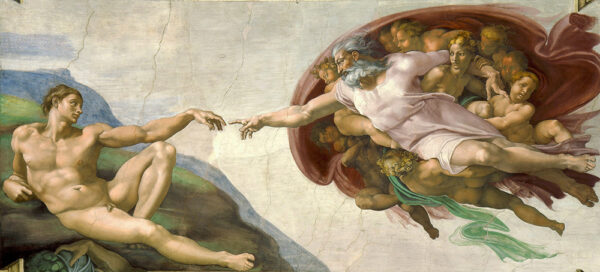
Eighth in a series
Occasionally, while reading “Let Us Dream Together,” some of the Pope’s words and phrases seem to leap out at me. They seem almost to demand my attention. They often cause me to pause and reflect. That was my experience when I saw the expression “existential myopia.”
The word “existential” has been very much part of my vocabulary since I started teaching philosophy many years ago. In conversations, whenever someone has learned that I teach the philosophy of existentialism, almost always the person with whom I am speaking asks the question, “Can you tell me what existentialism is?”
I have come to expect the question because many people have heard the word “existential” applied to books, films, even clothes. My answer goes something like this: Existentialism is the philosophy that emphasizes freedom more than any other philosophy. Some existentialists are atheists such as Jean-Paul Sartre, and some existentialists believe in God, such as Soren Kierkegaard and Gabriel Marcel. The atheistic philosophers claim that we are alone in the world and that we create ourselves by our free actions; the theistic existentialists believe that God creates us, and we co-create ourselves by our free actions. Whether atheistic or theistic, an existentialist places maximum emphasis on the freedom of every person. The theistic existentialist believes that God calls us to become freer and freer, which comes about by freely loving others and accepting others’ love.
Suggesting how we are called to make the world a better place, especially by helping those who are most needy, Pope Francis writes the following:
“Let’s consider a big obstacle to change, the existential myopia that allows us defensively to select what we see. Existential myopia is always about holding on to something we’re afraid to let go of. Covid has unmasked the other pandemic, the virus of indifference, which is the result of constantly looking away, telling ourselves that because there is no immediate or magic solution, it is better not to feel anything…
“I saw a photography exhibition here in Rome. One of the photos was called just that: Indifference. A lady is leaving a restaurant in winter, well wrapped up against the cold: leather coat, hat, gloves, all the apparel of the well-to-do. At the door of the restaurant, a woman is sitting on a crate, poorly dressed, shivering in the street, holding out her hand to the lady, who looks elsewhere. That photo touched a lot of people.”
I have not seen the photo that Pope Francis refers to, but it reminds me of a picture of Christ standing on a breadline with a group of needy men. That picture was given to me when I was ordained a priest, and I have had it on a wall in every residence I have had since ordination. I don’t think the picture will make me a saint, but I hope to remind myself of Christ’s presence in the poor. Concerning indifference, the pope contrasts what he calls a “throwaway culture” in which indifference reigns and the revolution of love to which he calls us to contribute.
Though I often feel overwhelmed when I think of all the world’s problems, I know that I must fight that feeling. None of us can do everything, but all of us can do something. The cosmic story is a love story being written through the creative love of God. When God loves, being appears. We can imitate the creative activity of God. No act of love is too small. I am trying to avoid talking about what I have in the past referred to as little acts of love. Every act of love participates in the revolution of love and the cosmic love story. We have been created by a loving God Who is Love, Who has created us in His image. Our vocation is to contribute to the cosmic love story. God is pure self-gift.
We are called to live in the manner of a gift imitating the God Who not only loves but is Love. Our first reaction to this call may be astonishment and perhaps even disbelief. How can we, sinful creatures, live as gifts fulfilling the challenging vocation God has given us? Alone, of course, we cannot, but we are not alone.
The Risen Christ and his Holy Spirit dwell within us. What we could never do alone, we can do because we share in God’s life. The cosmic love story is God saying to each of us, “I love you.” Our participation in the cosmic love story by reaching out in love to others is saying to God, “I love you.”
Father Lauder is a philosophy professor at St. John’s University, Jamaica. He presents two 15-minute talks from his lecture series on the Catholic Novel, 10:30 a.m. Monday through Friday on NET-TV.
